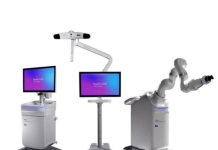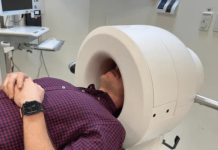US-based medtech startup Annoviant has received a $2.9m grant from the US National Institutes of Health (NIH) to fund the development and commercialisation of its paediatric TxGuard pulmonary-valved conduit (grafts).
The company has also raised funds matching the NIH grant, said Annoviant CEO Ajay Houde.
Related: Allurion closes $48 million financing
The current $2.9m grant is part of a series of NIH grants awarded to the company as part of the Small Business Technology Transfer (STTR) grant. Annoviant has received two NIH Phase I STTR and one Phase II SBIR grant to commercialise the TxGuard pulmonary valve conduit, the latest of which was valued at $1.85m and was awarded in October 2021.
Artery conduit surgeries are done to treat congenital heart disease, one of the most prevalent birth defects. Patients with CHD often require multiple open-heart surgeries, conduits reduce the need for multiple follow open heart surgeries.
TxGuard pulmonary-valved conduit is made using decellularized tissue-based scaffolds. Annoviant’s conduits can adapt and regenerate alongside patients, thereby, minimising the need for multiple re-operations, which is often required when using conduits.
A meta-analysis estimates that 1.35 million children are born annually with heart defects. As per the US CDC [Centers for Disease Control and Prevention], approximately one in four babies born with congenital defects require surgery or other procedures in their first year of life.
The global market for surgical heart valves is expected to grow from being worth approximately $1.9bn in 2023 to more than $2.7bn over the next decade, as per GlobalData analysis.
Other advances in the congenital heart disease space include AI-powered foetal heart monitors to detect congenital heart defects. In May 2023, France-based BrightHeart raised €2m ($2.1m) to develop AI-driven software that detects early signs of heart conditions and helps clinicians make delivery decisions.
In August 2023, CobiCure Medical Technologies gave $2m in funding to PolyVascular to advance the development of the latter’s non-surgical heart valve for young children with congenital heart disease. The valve uses a novel polymer for the replacement of faulty heart valves, thereby, decreasing the need for multiple surgeries.




